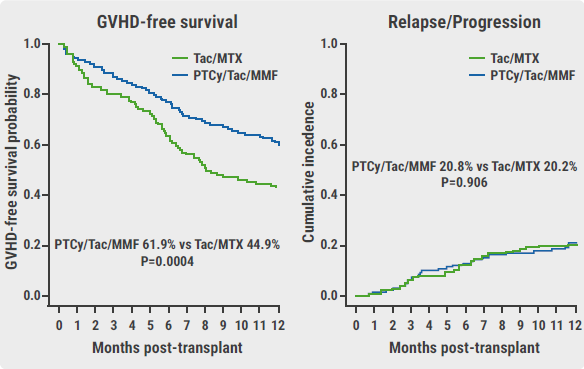https://doi.org/10.55788/573b1768
“Congenital C1 inhibitor deficiency causes HAE,” stated Dr Steven Grover (University of North Carolina, NC, USA) [1,2]. An epidemiological study, clinical samples, and mouse models were used to assess whether C1 inhibitor deficiency increases contact pathway-mediated activation of coagulation and thrombosis.
The epidemiological study included 239 patients with HAE and 2,383 healthy controls from a Swedish registry [3]. The results showed that there was an increased risk for venous thromboembolic events for patients with HAE compared with healthy controls (OR 3.59; 95% CI 2.17–5.84; P<0.0001). For arterial thromboembolic events, no such association was observed (OR 1.30; 95% CI 0.81–2.09; P=0.28).
Next, the research team investigated the thrombin generation potential of the plasma of patients with HAE (n=19) and of healthy controls (n=20) through automated calibrated thrombography. Patients with severe HAE (C1 inhibitor activation <25%; n=10) had a reduced thrombin generation lag time and an increased thrombin generation peak compared with healthy controls. Dr Grover added that there was no difference in tissue factor-initiated thrombin generation, indicating that severe C1 inhibitor deficiency is associated with a selective enhancement of contact pathway-mediated thrombin generation.
Furthermore, in C1 inhibitor-deficient mice, the investigators found a significantly increased thrombin generation peak compared with control mice. Also, an enhanced risk for venous thrombus formation was observed in mice with severe C1 inhibitor deficiency. In line with the results of the epidemiological study, no such association was found for arterial thrombosis, therefore displaying consistency with the phenotype of HAE.
- Grover S, et al. C1 Inhibitor Deficiency Results in Increased Activation of Coagulation and Enhanced Venous Thrombosis. Abstract 5, ASH 64th Annual Meeting, 10–13 December 2022, New Orleans, LA, USA.
- Davis AE, et al. Thromb Haemost. 2010;104(5):886–893.
- Sundler Björkman L, et al. Clin Transl Allergy. 2022;12(3):e12135.
Copyright ©2023 Medicom Medical Publishers
Posted on
Previous Article
« Durable responses to gene therapy in haemophilia A Next Article
Letter from the Editor »
« Durable responses to gene therapy in haemophilia A Next Article
Letter from the Editor »
Table of Contents: ASH 2022
Featured articles
Acute Lymphoblastic Leukaemia
Blinatumomab candidate for standard-of-care in newly diagnosed B-ALL
High-dose methotrexate or standard interim maintenance in young patients with ALL?
Acute Myeloid Leukaemia
Excellent results for triplet regimen in FLT3-mutated AML
MRD by qPCR prognostic of outcomes in venetoclax-treated NPM1-mutated AML
Promising results for triplet therapy with magrolimab in AML
Should we use intensive chemotherapy prior to allo-HCT in relapsed/refractory AML?
Chronic Leukaemia
Zanubrutinib wins battle of BTK inhibitors in relapsed or refractory CLL/SLL
Ibrutinib plus venetoclax displays long-term benefits in CLL
Multiple Myeloma
Talquetamab further investigated in heavily pre-treated MM after promising phase 2 data
Promising results of elranatamab for MM in phase 2 MagnetisMM-3 trial
Deep and durable responses for quadruple therapy in smouldering MM
Ultra-sensitive MRD assessment in MM with BloodFlow
CAR-Hematotox score proves useful in relapsed/refractory MM
Head-to-head: VMP versus Rd in transplant-ineligible MM
Lymphoma
Ibrutinib added to ASCT improves clinical outcomes in mantle cell lymphoma
High-dose chemotherapy plus ASCT superior to standard immuno-chemotherapy in primary CNS lymphoma
Odronextamab has considerable anti-tumour effects in relapsed/refractory diffuse large B-cell lymphoma and follicular lymphoma
Excellent results for AFM13-complexed NK cells in CD30-positive lymphoma
CAR-Hematotox score predicts toxicity, infections, and clinical outcomes in MCL
Myeloproliferative Neoplasms
Efgartigimod successful in immune thrombocytopenia
INCA033989: novel investigational agent for CALR-mutated MPN
Ruxolitinib mediates clonal evolution of RAS pathway mutations in MPN
Immune Thrombocytopenia
Long-term risk for haematologic disease in persistent, isolated mild thrombocytopenia
Various Topics
C1 inhibitor deficiency linked to thrombosis
Durable responses to gene therapy in haemophilia A
Long-term benefits from beti-cel in transfusion-dependent β-thalassaemia
Neutrodiet: non-restricted diet is the preferred option after SCT
Iptacopan offers solution for patients with PNH and residual anaemia after standard-of-care
Novel therapy may replace standard-of-care prophylaxis for GVHD
LMWH does not result in higher live birth rates in women with inherited thrombophilia
Related Articles
February 20, 2023
Neutrodiet: non-restricted diet is the preferred option after SCT
February 20, 2023
Long-term benefits from beti-cel in transfusion-dependent β-thalassaemia

February 20, 2023
Novel therapy may replace standard-of-care prophylaxis for GVHD
© 2024 Medicom Medical Publishers. All rights reserved. Terms and Conditions | Privacy Policy
HEAD OFFICE
Laarderhoogtweg 25
1101 EB Amsterdam
The Netherlands
T: +31 85 4012 560
E: publishers@medicom-publishers.com

